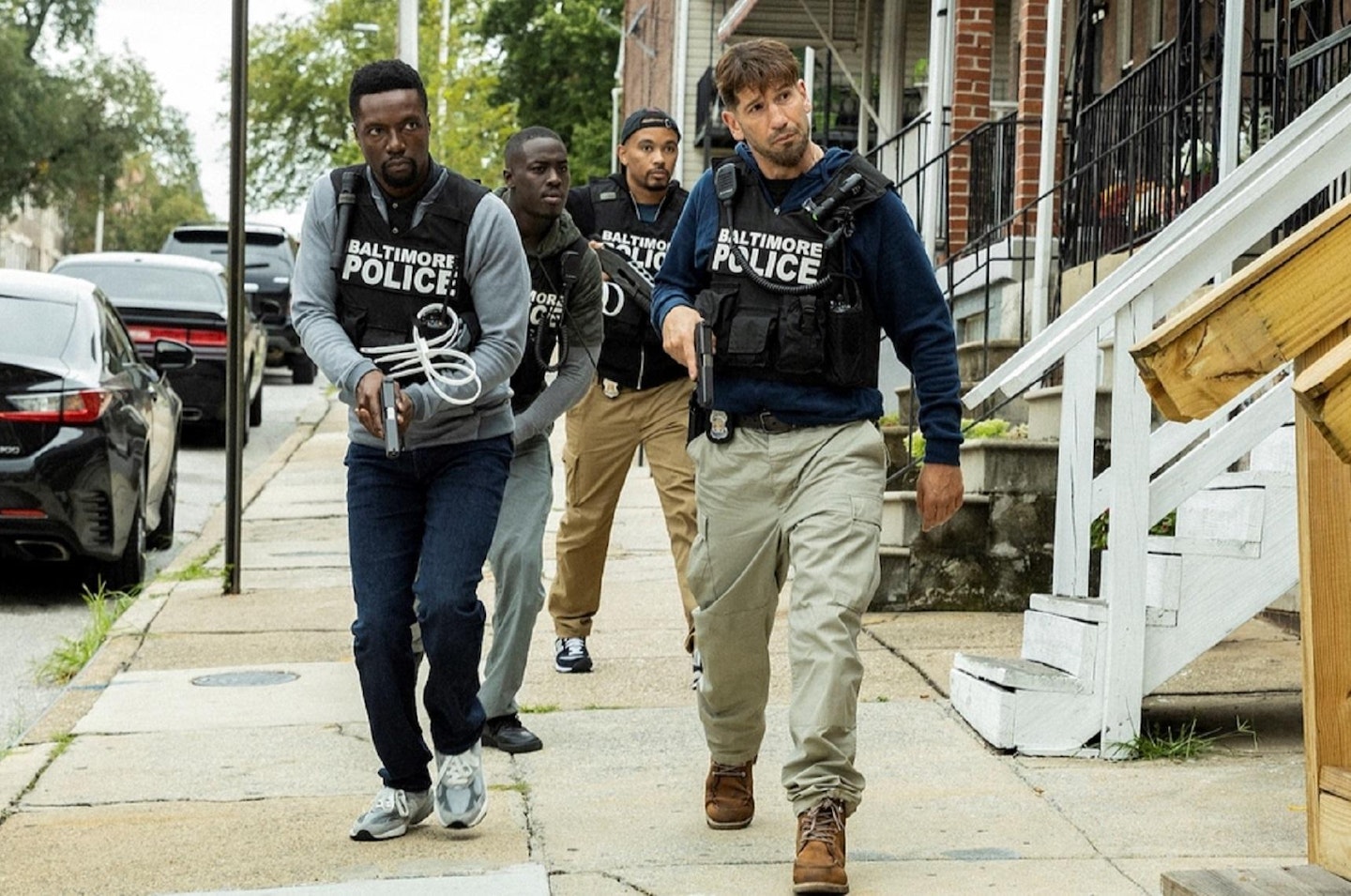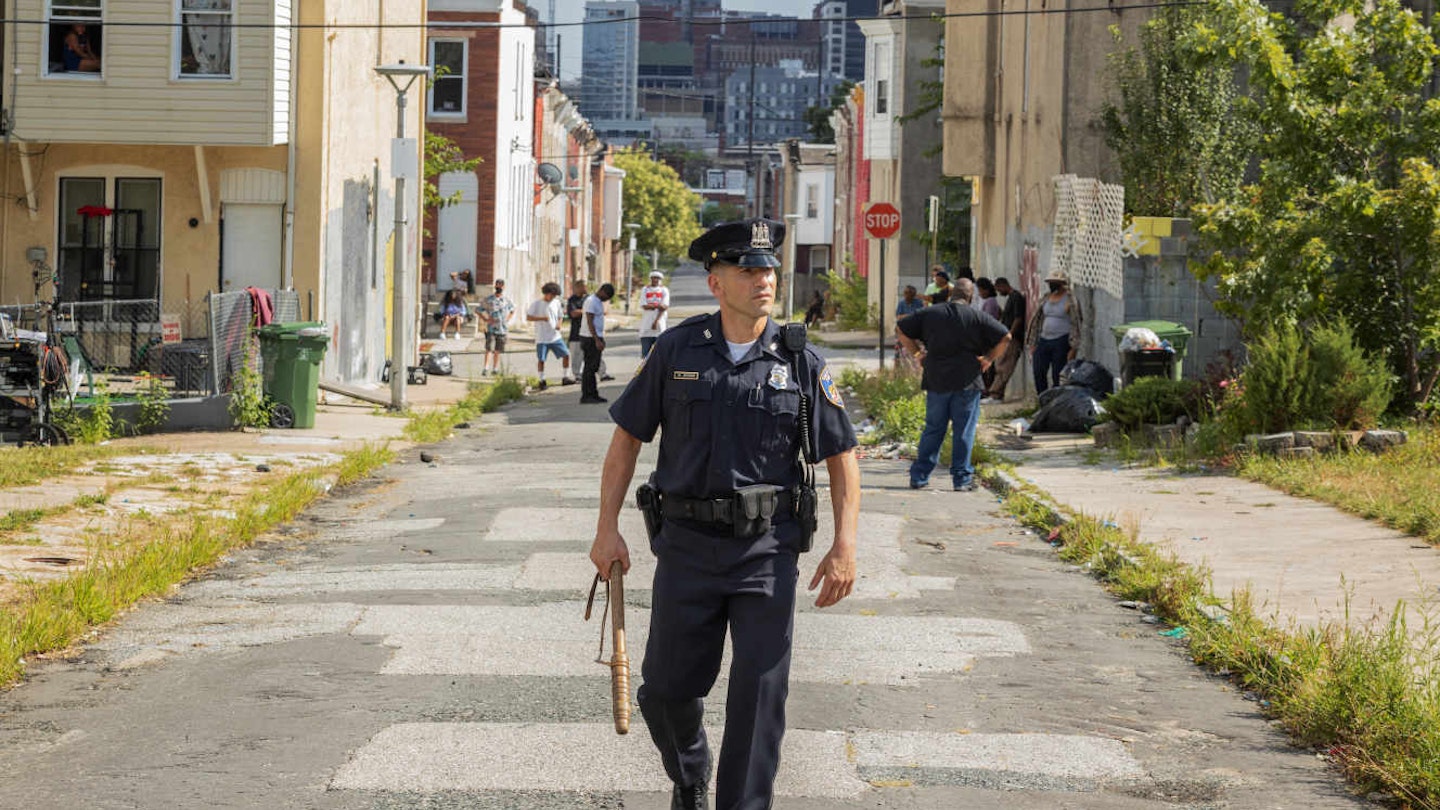In The Wire, David Simon’s seminal, superlative early-2000s TV masterpiece, many characters — most memorably Dominic West’s Jimmy McNulty — espouse the theory of “Good police”. (Spoken in a Baltimore accent, it’s said more like “Good po-lice”.) Like everything in that show, it was a nebulous, ambiguous idea, existing forever in the greys between black and white. It’s a concept that Simon — surely among the best television creators of all time — expands and explores in We Own This City, his much-awaited return to his beloved hometown.

Comparisons with The Wire are unavoidable, but it’s interesting that just as much is different as is familiar. The gritty street corners of the earlier series are present and correct, and the two shows share several actors (Wire-heads will lose their shit when they first see former drug kingpins wearing suits and police badges). And as with the earlier show, Simon gives himself a wide remit, looking at not just policing but the justice system at large, and how politics, unions, lawyers, professional criminals and regular folk intersect with it.
Comparisons with The Wire are unavoidable, but it’s interesting that just as much is different as is familiar.
But unlike The Wire, this is not fictional. Based on the book by Baltimore Sun reporter Justin Fenton, it is a sharply focused, finite story of the deeply corrupt Gun Trace Task Force (GTTF) within the Baltimore Police Department, and how that corruption speaks to the wider rot. It’s about how the system around it not only allowed it to happen but had structures in place to encourage it; and how policing works in the Black Lives Matter era (the real-life death of Freddie Gray at the hands of Baltimore Police, and the subsequent city-wide protests, is a key plot point).
Key to the GTTF is its charismatic leader Sgt Wayne Jenkins, played as a ball of terrifying, twitchy energy by Jon Bernthal. In Bernthal’s hands Jenkins is pure charm offensive, with an emphasis on the offensive: a rivetingly physical performance that weaponises charisma into making criminal activity almost seem like the moral thing to do. While it’s often a talky show, there are frequent flashes of vigorous action — confidently directed by Reinaldo Marcus Green — as the GTTF make their busts, the squad of macho cops practically getting aroused every time they find an illegal firearm.
Jenkins is just one piece of a complex puzzle, as the show darts between timelines and perspectives, spanning 2003 to 2017. Much of it is told in flashback, as the net of an FBI investigation into the police slowly closes. Like The Wire, this is a show that demands your full attention, the scripts flooded with dense police and legal terminology that won’t always be obvious — but Simon and his team show faith in the audience, a faith that is gradually, gratifyingly rewarded. We Own This City is not quite the all-encompassing socio-political experience of The Wire, and the concept of “good police” is ever nebulous, but as a careful chronicler of society at large, David Simon feels as essential as ever.
